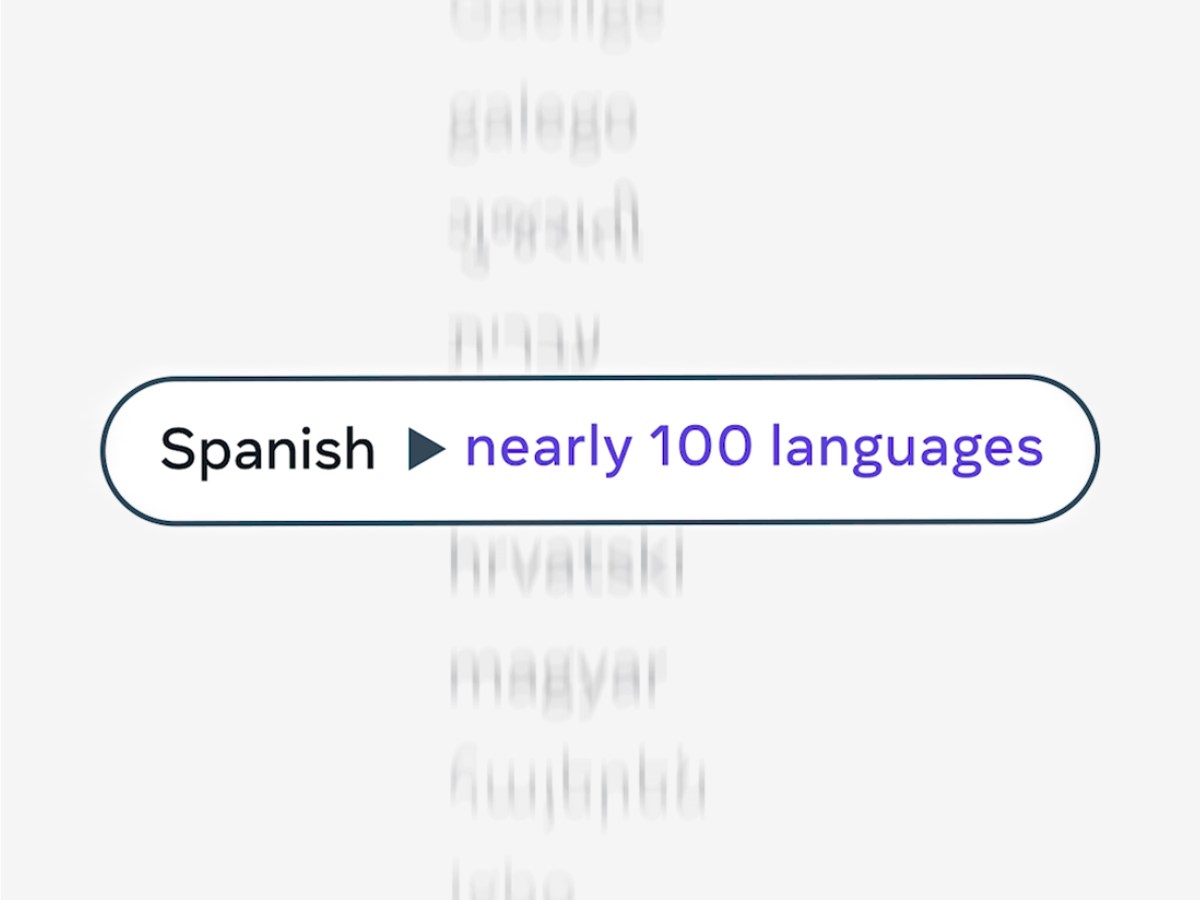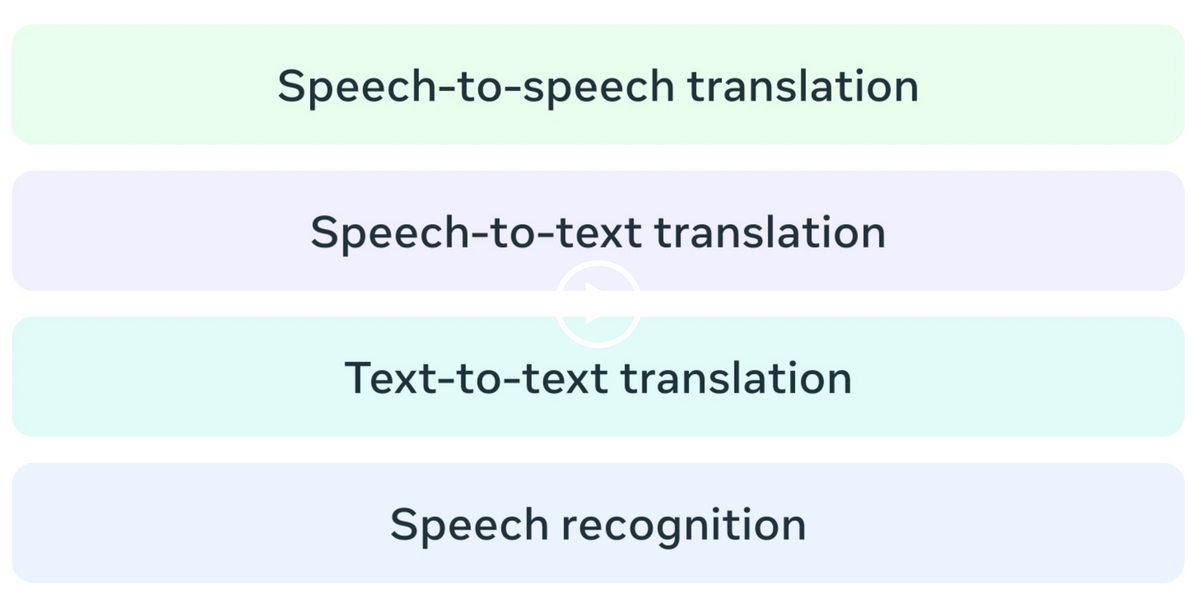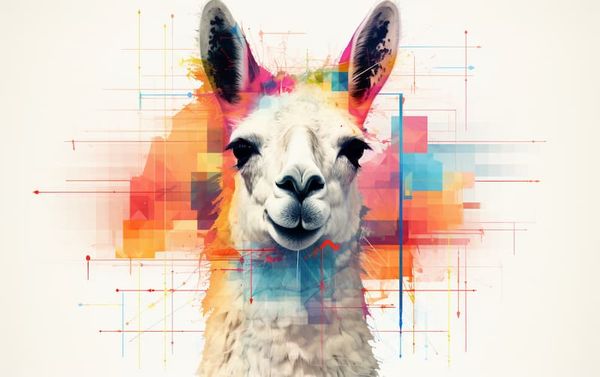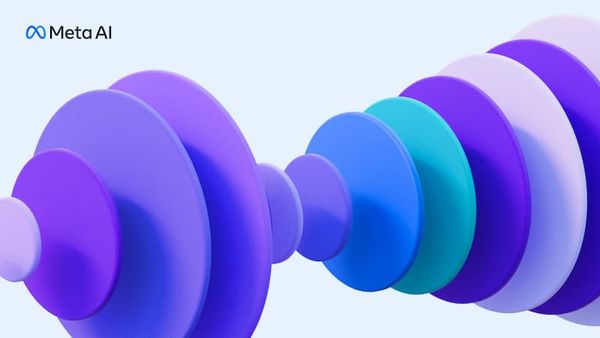Meta Platforms has developed an artificial intelligence (AI) model called SeamlessM4T that enables real-time speech translation across nearly 100 languages. This technology demonstrates Meta's commitment to building an open AI ecosystem and bringing people together through immersive social connections.

Seamless Translation Across Languages
Meta's new SeamlessM4T AI model can translate between text and speech in almost 100 languages. This is a significant advancement, considering most translation tools only work between a limited number of languages. For example, Google Translate supports 109 languages but can only translate between certain pairs like English and Spanish.
SeamlessM4T also enables full speech-to-speech translation in 35 languages. As Mark Zuckerberg explained, this technology could one day power real-time voice conversations between metaverse users across the globe. "Imagine being able to speak with someone in a different language and have it translated for both of you in real time," said Zuckerberg.
With SeamlessM4T, Meta has taken a big step towards the seamless, multilingual metaverse. The ability to converse naturally in many tongues could bring people together in entirely new ways.
An Open Model for the World
Unlike other tech giants, Meta has chosen to make SeamlessM4T available to the public for non-commercial use. Zuckerberg believes an open AI ecosystem plays to Meta's strengths in building consumer products.
"Why keep AI technology locked up in a lab when opening it up can help accelerate research and development?" said Zuckerberg. "The more people who can access and build with SeamlessM4T, the more innovative ways we'll see it used."
Meta is part of an open-source movement in AI and has released other models like LLAMA for free public use. While some may question how Meta trained these models, Zuckerberg argues that transparency and allowing public access ultimately benefits society more.
As issues around AI ethics and bias continue to be debated, Meta's open approach represents one side of the conversation. It provides a counterpoint to companies like OpenAI that charge for API access to proprietary models like GPT-3.
Bringing the World Closer Together
At its core, Meta's mission is bringing the world closer together through social technology. AI translation models like SeamlessM4T aim to break down language barriers that divide people.
"Real-time voice translation could enable a Spanish speaker from Barcelona and a Mandarin speaker from Beijing to become friends," explained Zuckerberg. "Our goal is to give 3 billion people the ability to communicate regardless of where they were born or which languages they speak."
Whether in the metaverse or on social media apps, AI-powered translation allows more authentic connection. As seamless translation reaches more languages, Meta believes it opens doors to education, business, and relationships that were previously closed by language differences.
Despite the challenges ahead, Meta's latest innovation represents a hopeful step towards an inclusive digital world where language is no obstacle. For a company betting on the metaverse future, improving how humans relate is just as important as any virtual world they hope to build.









